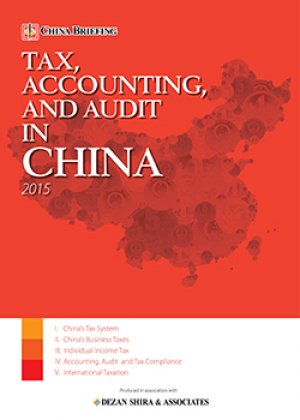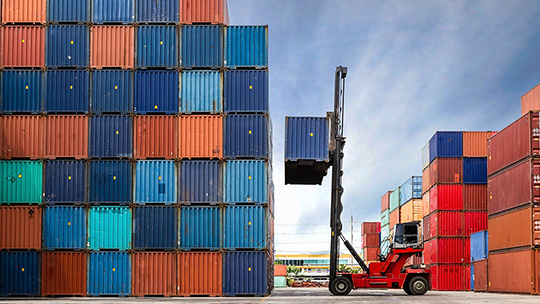China’s Fiscal Revenue Growth Slows to 23-Year Low
On January 30, 2015, China’s Ministry of Finance released its annual fiscal report. The report showed that national fiscal revenue grew by only 8.6 percent to RMB 14.035 trillion (US$2.2 trillion) in 2014, the lowest rate of the past 23 years.
An official statement accompanying the report provided a number of reasons for the decline: firstly, the statement noted that China’s main indices for economic growth have declined across the board to various degrees. These include industrial production, consumption, investments, corporate profits, imports and exports. As a result, revenues from the country’s main taxes have slowed down in response to a smaller tax base.
Additionally, the decline in fiscal revenue was attributed to downward movement of the producer price index (PPI), which is calculated according to present prices. Moreover, a slump in land sales, which make up 23 percent of national government revenue, declined at an equal rate to overall tax revenue, according to the report. Lastly, it was noted that while China’s ongoing VAT reform has alleviated the tax burdens of enterprises, it has also led to a corresponding reduction in tax revenue.
Weighing in on this, Chinese domestic commentators took the view that these were not signs for alarm, as fiscal revenues are still growing on the whole. Criticism was mainly directed at the way the government allocates its spending, suggesting it should do more to improve people’s livelihoods. Most commentators agreed that government expenditures should be more thoughtfully allocated and streamlined for efficiency.
 RELATED: The Diverging Competitiveness of Manufacturing in China
RELATED: The Diverging Competitiveness of Manufacturing in China
Views from outside China, however, expressed more concern about China’s economy in reaction to this news. Foreign observers noted that the slowing growth of China’s fiscal revenue is likely to add more downward pressure to an already -slowing economy, calling this an ill-recognized risk to China’s national economy.
Chris Devonshire-Ellis of Dezan Shira & Associates comments,”China is currently going through tax reforms and has moved progressively to a VAT collection based platform. VAT now accounts for over 50 percent of China’s fiscal revenues. However, collection remains very poor among State-Owned Enterprises, with these companies sucking up money but not returning much in fiscal income. These figures show that reform is still very much needed with a focus on China’s domestic entities and that getting the SOEs off state support and into state revenue is still very much an elusive target.”
|
Asia Briefing Ltd. is a subsidiary of Dezan Shira & Associates. Dezan Shira is a specialist foreign direct investment practice, providing corporate establishment, business advisory, tax advisory and compliance, accounting, payroll, due diligence and financial review services to multinationals investing in China, Hong Kong, India, Vietnam, Singapore and the rest of ASEAN. For further information, please email china@dezshira.com or visit www.dezshira.com. Stay up to date with the latest business and investment trends in Asia by subscribing to our complimentary update service featuring news, commentary and regulatory insight. |
![]()
 Tax, Accounting, and Audit in China 2015
Tax, Accounting, and Audit in China 2015
This edition of Tax, Accounting, and Audit in China, updated for 2015, offers a comprehensive overview of the major taxes foreign investors are likely to encounter when establishing or operating a business in China, as well as other tax-relevant obligations. This concise, detailed, yet pragmatic guide is ideal for CFOs, compliance officers and heads of accounting who must navigate the complex tax and accounting landscape in China in order to effectively manage and strategically plan their China operations.
 Double Taxation Avoidance in China: A Business Intelligence Primer
Double Taxation Avoidance in China: A Business Intelligence Primer
In our twenty-two years of experience in facilitating foreign investment into Asia, Dezan Shira & Associates has witnessed first-hand the development of China’s double taxation avoidance mechanism and established an extensive library of resources for helping foreign investors obtain DTA benefits. In this issue of China Briefing Magazine, we are proud to present the distillation of this knowledge in the form of a business intelligence primer to DTAs in China.
 Annual Audit and Compliance in China
Annual Audit and Compliance in China
In this issue of China Briefing, we discuss annual compliance requirements for foreign-invested enterprises, including wholly-foreign owned enterprises, joint ventures and foreign-invested commercial enterprises, as well as the less demanding requirements for representative offices. We also highlight the most recent tax and legal changes that will significantly influence the way companies do business in China in 2014.
- Previous Article What China Wants From India – Manufacturing Capacity
- Next Article Paying Foreign Employees in China: Individual Income Tax & Salary Planning


























